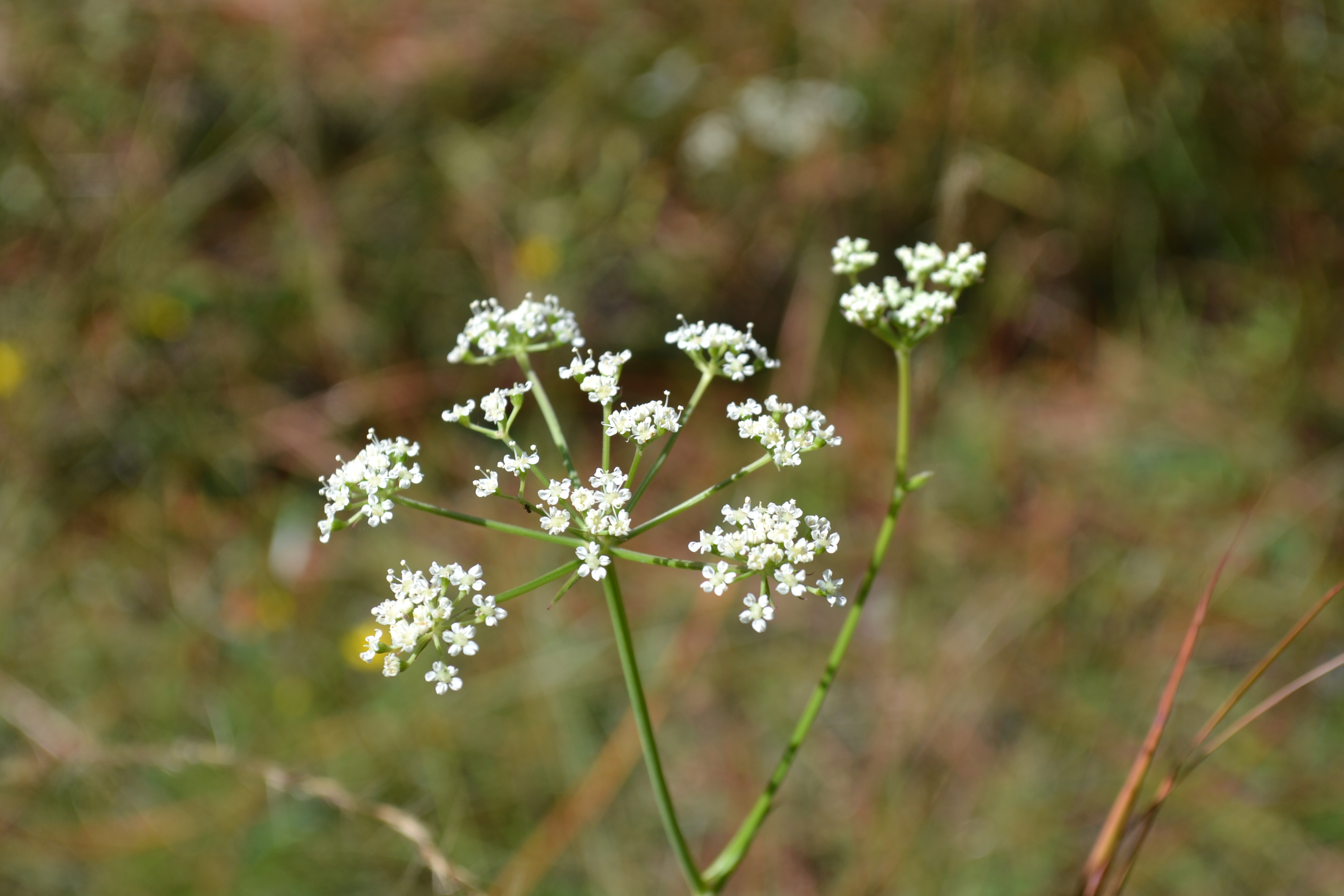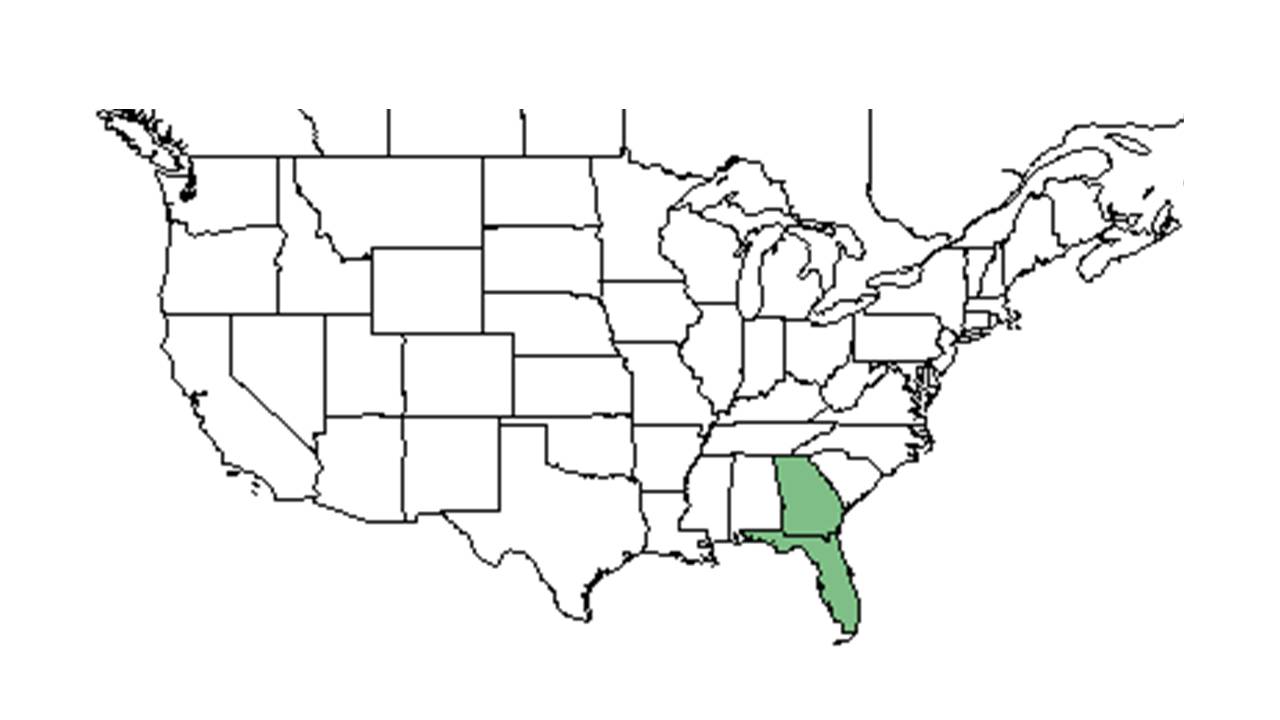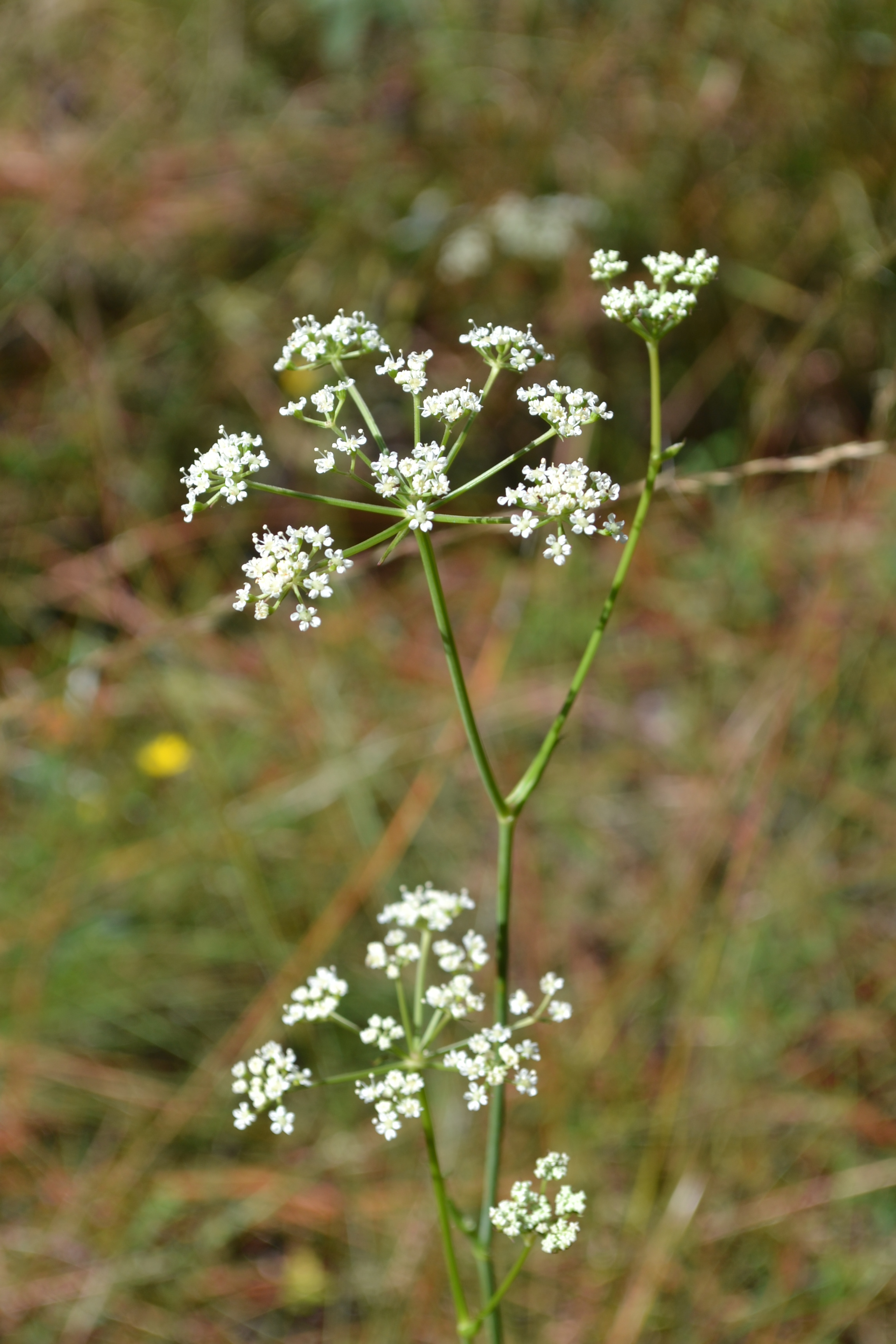Difference between revisions of "Angelica dentata"
| Line 26: | Line 26: | ||
==Ecology== | ==Ecology== | ||
===Habitat=== <!--Natural communities, human disturbed habitats, topography, hydrology, soils, light, fire regime requirements for removal of competition, etc.--> | ===Habitat=== <!--Natural communities, human disturbed habitats, topography, hydrology, soils, light, fire regime requirements for removal of competition, etc.--> | ||
| − | ''Angelica dentata'' is restricted to native groundcover with a statistical affinity in upland pinelands of South Georgia (Ostertag and Robertson 2007). ''Angelica dentata'' is found in sandhills and flatwood habitats (Weakley 2015). Is found in Longleaf pine-wiregrass savannas and sand ridges, Longleaf pine-scrub oak areas, flatwoods, low wet boggy areas, and in mixed stands. It can also be found in human disturbed areas such as along the roadside and in fields, areas that have been logged and cleared. Can thrive in areas that are open or semi-shaded. Is associated with areas that have dry sand, sandy, gravelly soil, loamy sand, and dry and moist loamy soil (FSU Herbarium). Sandhill. <ref>Annie observation<ref> | + | ''Angelica dentata'' is restricted to native groundcover with a statistical affinity in upland pinelands of South Georgia (Ostertag and Robertson 2007). ''Angelica dentata'' is found in sandhills and flatwood habitats (Weakley 2015). Is found in Longleaf pine-wiregrass savannas and sand ridges, Longleaf pine-scrub oak areas, flatwoods, low wet boggy areas, and in mixed stands. It can also be found in human disturbed areas such as along the roadside and in fields, areas that have been logged and cleared. Can thrive in areas that are open or semi-shaded. Is associated with areas that have dry sand, sandy, gravelly soil, loamy sand, and dry and moist loamy soil (FSU Herbarium). Sandhill. <ref>Annie observation</ref> |
===Phenology=== <!--Timing off flowering, fruiting, seed dispersal, and environmental triggers. Cite PanFlora website if appropriate: http://www.gilnelson.com/PanFlora/ --> | ===Phenology=== <!--Timing off flowering, fruiting, seed dispersal, and environmental triggers. Cite PanFlora website if appropriate: http://www.gilnelson.com/PanFlora/ --> | ||
Revision as of 15:24, 18 August 2015
| Angelica dentata | |
|---|---|

| |
| Photo taken by Kevin Robertson | |
| Scientific classification | |
| Kingdom: | Plantae |
| Division: | Magnoliophyta - Flowering plants |
| Class: | Magnoliopsida – Dicotyledons |
| Order: | Apiales |
| Family: | Apiaceae ⁄ Umbelliferae |
| Genus: | Angelica |
| Species: | A. dentata |
| Binomial name | |
| Angelica dentata (Chapm.) J.M. Coult. & Rose | |

| |
| Natural range of Angelica dentata from USDA NRCS Plants Database. | |
Common names: Coastal Plain Angelica, Sandhill Angelica
Contents
Description
Distribution
It is found in southwest and southcentral Georgia and in the eastern part of the panhandle of Florida (Weakley 2015).
Ecology
Habitat
Angelica dentata is restricted to native groundcover with a statistical affinity in upland pinelands of South Georgia (Ostertag and Robertson 2007). Angelica dentata is found in sandhills and flatwood habitats (Weakley 2015). Is found in Longleaf pine-wiregrass savannas and sand ridges, Longleaf pine-scrub oak areas, flatwoods, low wet boggy areas, and in mixed stands. It can also be found in human disturbed areas such as along the roadside and in fields, areas that have been logged and cleared. Can thrive in areas that are open or semi-shaded. Is associated with areas that have dry sand, sandy, gravelly soil, loamy sand, and dry and moist loamy soil (FSU Herbarium). Sandhill. [1]
Phenology
Has been observed flowering between June and December (FSU Herbarium).
Seed dispersal
Seed bank and germination
Fire ecology
It can be found in frequently burned areas such as Longleaf pine savannas (FSU Herbarium).
Pollination
Use by animals
Diseases and parasites
Conservation and Management
Cultivation and restoration
Photo Gallery
References and notes
Florida State University Robert K. Godfrey Herbarium database. URL: http://herbarium.bio.fsu.edu. Last accessed: June 2014. Collectors: L. C. Anderson, W. Baker, B. Boothe, M. Boothe, A. F. Clewell, V. Craig, M. A. Garland, R. K. Godfrey, R. Kral, E. Keppner, L. Keppner, R. Komarek, T. MacClendon, K. MacClendon, R. A. Pursell, H. Roth, and R. White. States and Counties: Florida: Bay, Calhoun, Franklin, Gadsden, Jackson, Leon, Liberty, and Wakulla. Georgia: Decatur, Grady, and Thomas.
Ostertag, T.E., and K.M. Robertson. 2007. A comparison of native versus old-field vegetation in upland pinelands managed with frequent fire, South Georgia, USA. Pages 109–120 in R.E. Masters and K.E.M. Galley (eds.). Proceedings of the 23rd Tall Timbers Fire Ecology Conference: Fire in Grassland and Shrubland Ecosystems.
Weakley, Alan S. Flora of the Southern and Mid-Atlantic States: Working Draft of 21 May 2015. University of North Carolina Herbarium (NCU). PDF. 1227.
- ↑ Annie observation
